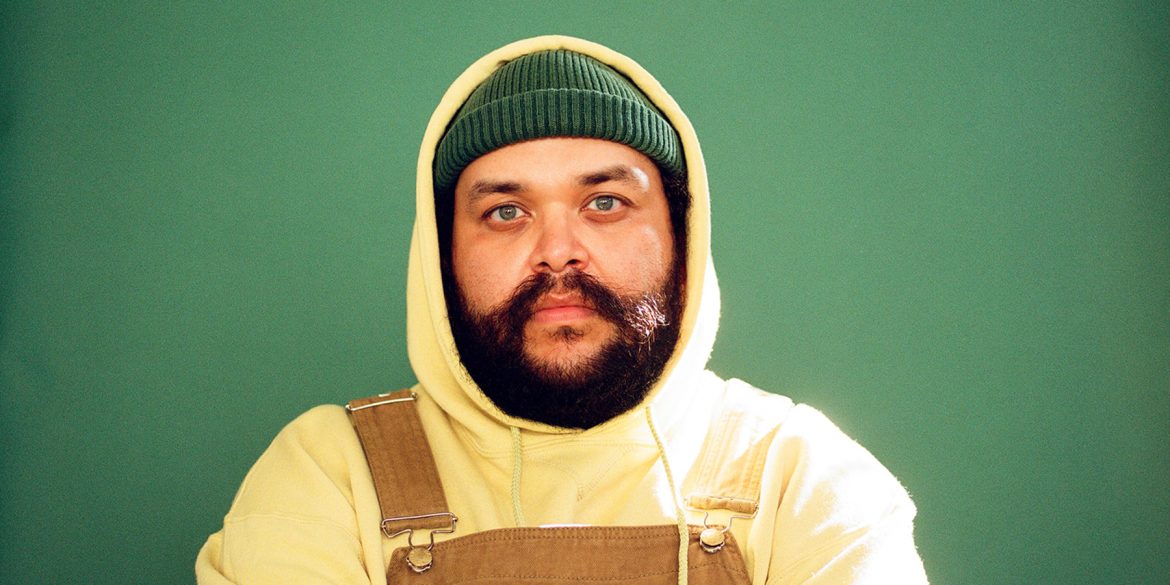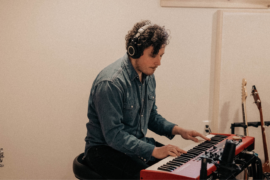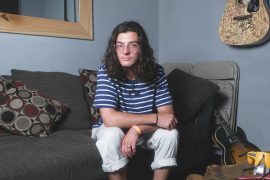CreativeMornings’ most recent speaker, Sean Oreo Jones, is a longtime advocate of the Indianapolis music scene. As an artist, he’s been dropping albums since 2010. You might’ve seen him on our digital cover back in 2021, or perhaps you know him as the founder of Chreece, one of the Midwest’s largest hip-hop festivals. When he’s not making music or hosting the event of the summer, Jones can often be found managing the low-power FM radio station 99.1 WQRT from Listen Hear, a multipurpose sound-art space located in Garfield Park. We stopped by Listen Hear to chat with Jones about his CreativeMornings lecture, the return of Chreece, and how investing in artists helps better our city.
Katie Freeman: Chreece is coming back! What should we be looking out for during these next few months?
Oreo Jones: Probably some cool partnerships. And announcing artists and venues and new components we have for this year!
KF: Where can we find those announcements?
OJ: You can follow @chreeceaf on Instagram, Twitter, and Facebook, if people still use that. You can find out everything on our website, chreeceaf.com.
KF: Is it a ticketed event?
OJ: Yes, you have to buy a ticket. There will be GA and VIP tickets.
KF: How have you seen Chreece impact the careers of artists who have performed at the event in the past?
OJ: It’s definitely a good motivational event where local people show up. Some artists drop projects around the day of the festival. Different content is created from the festival. It’s been cool seeing people get established and seeing other venues take notice of certain people that stand out.
KF: And since it’s money month here at PATTERN, do the featured musicians at Chreece get paid?
OJ: They sure do! They have since the first one. The funding comes from sponsorships with organizations, foundations, and businesses around the city.
KF: How did you fund your own projects when you were starting out as an artist?
OJ: I didn’t. It was out of my own pocket, scraping pennies. Or, just being a guinea pig—meeting someone at a studio that’s like, “Hey, I really like your style. I’d like to record you,” when I was eighteen or nineteen and had sixty dollars to my name. It’s been an up and down kind of thing. I feel like a lot of people can say that. There were days where I was like, “What the hell am I doing?”
What’s cool now is that the city is opening up. There’s different resources for creatives through grants and stuff. It’s super important to take a look because they’re actually taking rap and hip-hop artists applying seriously.
KF: Has it gotten easier to fund projects now that you’re more established?
OJ: Not really. Every project is different. I’ve been very fortunate with this 81355 project and our last group. We had a record deal and we had all these resources.
KF: So you’ve been signed to a record label—how does that impact finances as a musician?
OJ: Not much. Getting royalties back has been cool. I think the main thing financially is us being able to play shows and showcases. We have a booking agent now, domestic and European. That’s how you’re making money as a musician in 2023: playing shows. At any level, from a local level to Beyoncé level.
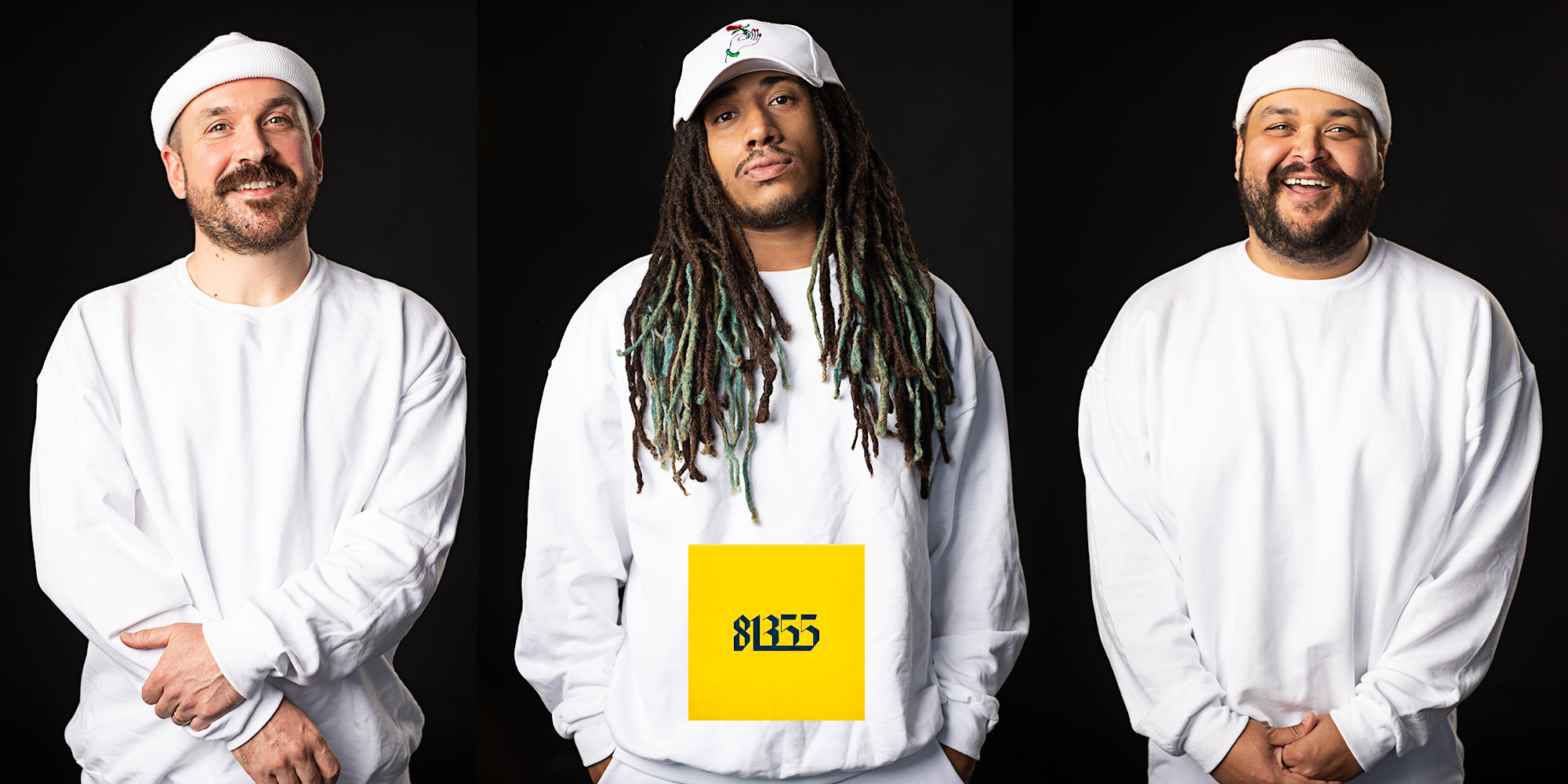
KF: It feels like there’s a barrier to entry for people in Indianapolis who would like to make music, but don’t have the means to afford it. From your experience, is that true?
OJ: That’s a hundred percent true. It costs money to take your craft and your music to the next level. It costs money to go into the studio—not only to record, but to mix and master. When you’re done with that, you gotta match that with your videos and content on social media. That’s the lifeblood of any project right now. And when you’re done with that, how are you going to promote it? Depending if you’re on a label, you may or may not have a PR person to help with that. PR is integral. Then there’s licensing and publishing. People aren’t really making money from streaming on Spotify, Apple Music, or any of those platforms. The real money would be if your song gets placed in a Netflix series or a granola bar commercial.
KF: You’re in charge of the low-power FM radio station here, 99.1 WQRT. In a world where those streaming services are so prevalent, why should people listen to the radio?
OJ: I feel like our radio station is the most different in the city. We’re playing stuff that you’re not going to hear on any other station, I promise you that. It’s volunteer. It’s community driven. If anyone has a cool, crazy idea, we’ll listen to it. And it’s the city’s radio station, so the city can take it in whatever direction it wants. That’s important. At the end of the day, I feel like low-powered FM stations across the country are super intriguing and in vogue. Everyone wants to feel nostalgia and flirt with old retro technology. This is a space for that.
KF: You mentioned the city opening up opportunities for creatives and investing in artists. Why is that so important?
OJ: It keeps people from leaving. It attracts people to the city. There’s actually cool stuff going on. It makes our scene and our community feel validated, that we’re the ones that make the city dough. I’m talking about all kinds of artists: visual art, musicians, makers. All these things are important to nurture. If there wasn’t any of that stuff around, what’s the point of people coming here? Then in turn, you lose corporations that come here willing to spend millions of dollars to boost our economy.
KF: What do you think about the whole “do what you love” vs. “do what makes you money” argument?
OJ: I’ve been doing this for a long time at different levels. People ask, “Why are you still doing this? Have you thought about doing something else? Do you have a backup plan?” I never could answer that. My main goal is to keep creating. If you don’t create what you love, then there’s no way in fuck that you’re going to be able to continue. If you’re doing it for the money, then you’re done. If you are creating and being your whole authentic self, you can make a million dollars. If you’re recreating something from social media or TV, and emulating that because that’s the flavor of the week, you’re already at a disadvantage.
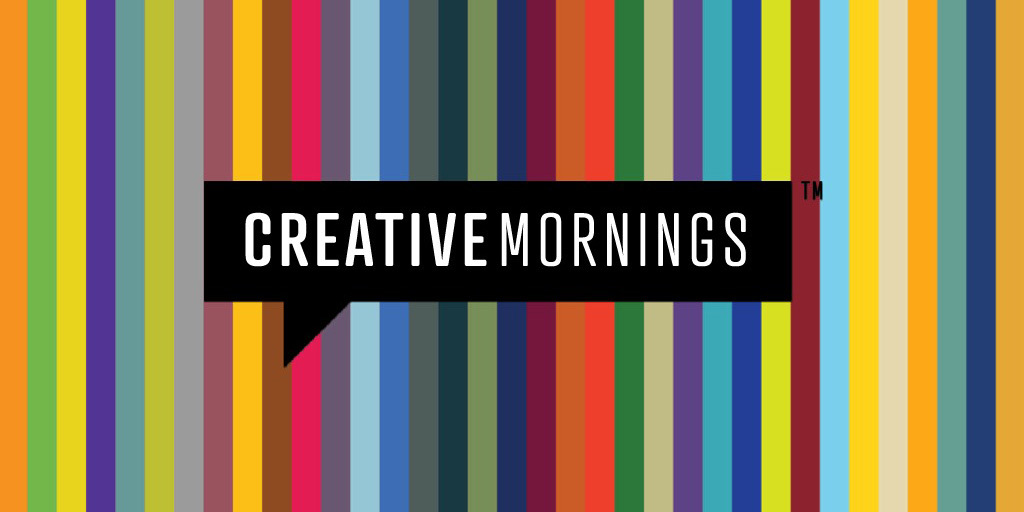
This interview is in collaboration with CreativeMornings/Indianapolis. Originated in Brooklyn, New York, CreativeMornings is a monthly breakfast lecture that focuses on creative individuals in all kinds of fields. The event now spans 223 cities around the world. One Friday a month, the Indianapolis lectures are hosted by Ryan Hunley. The event is free to attend and includes free donuts and Tinker Coffee. Sign up for the newsletter to stay up to date on events and follow CreativeMornings on Instagram.

